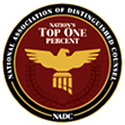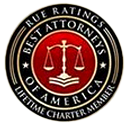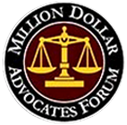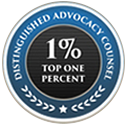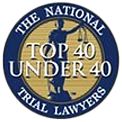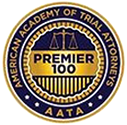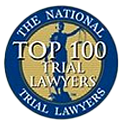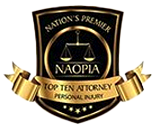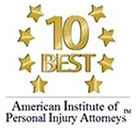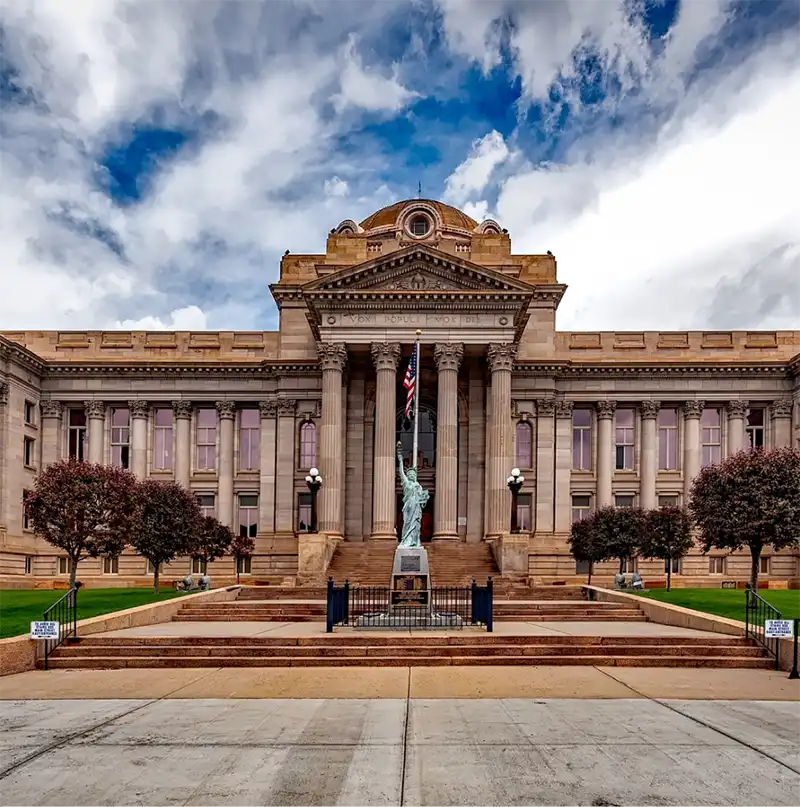Philadelphia experiences various weather conditions throughout the year that significantly impact road safety. From heavy snowfall in winter to sudden summer downpours, these weather events create dangerous driving situations that lead to numerous accidents annually.
At Gibbons & Crichton, our experienced Philadelphia car accident lawyers have helped many Philadelphia residents deal with the aftermath of accidents due to weather conditions.
Research shows that adverse weather contributes to a substantial portion of vehicle crashes nationwide. According to the Federal Highway Administration, approximately 21% of vehicle crashes are related to adverse weather conditions. This statistic highlights the danger that bad weather poses to drivers in urban environments like Philadelphia.
Common Weather Conditions Causing Philadelphia Car Accidents
Some of the common weather conditions causing car accidents in Philadelphia include:
Rain and Flooding
Rain remains one of the most hazardous weather conditions for Philadelphia drivers. The city receives an average of 47 inches of rainfall annually, creating slick roads and reduced visibility.
Heavy downpours can cause flash flooding on major roadways like I-95 and Roosevelt Boulevard.
Wet roads reduce tire traction and increase stopping distances. Even light rain mixes with oil residue on roads to create extremely slippery surfaces during the first 30 minutes of rainfall. This phenomenon catches many drivers off guard, resulting in rear-end collisions and multi-vehicle accidents. Philadelphia storms often bring heavy rainfall that overwhelms drainage systems.
Underpasses in areas like South Philadelphia frequently flood, trapping vehicles and creating dangerous situations for motorists unaware of the water depth. The risk of hydroplaning increases dramatically during these events.
Snow and Ice
Winter weather presents unique challenges for Philadelphia drivers. The city averages about 23 inches of snowfall annually, with January and February typically seeing the most accumulation. Snow-covered roads reduce visibility and traction, while black ice forms an invisible danger on bridges and overpasses. Snow removal efforts cannot always keep pace with heavy snowfall, leaving many residential streets dangerous days after a storm. Areas with hills, such as Manayunk and Roxborough, become particularly treacherous during winter weather events. Ice storms create especially dangerous conditions as a thin layer of nearly invisible ice coats road surfaces. These conditions cause numerous spin-outs and collisions on major highways like the Schuylkill Expressway each winter.
Fog and Low Visibility
Fog frequently develops along the Delaware and Schuylkill Rivers, creating visibility hazards for morning commuters. Dense fog reduces visibility to less than a quarter-mile, making it difficult to see traffic signals, other vehicles, and road hazards. The spring and fall seasons bring the highest risk of fog-related accidents in Philadelphia. During these transitional months, temperature differences between air and water surfaces create perfect conditions for thick fog formation, particularly in riverside neighborhoods and along I-95.
High Winds
Strong wind gusts affect high-profile vehicles traveling across Philadelphia’s bridges. The Walt Whitman, Ben Franklin, and Betsy Ross bridges all experience dangerous crosswinds during severe weather. These winds can push vehicles into adjacent lanes or make steering difficult. Wind-blown debris also creates road hazards during storms. Tree limbs, construction materials, and other items blown onto roadways cause drivers to swerve suddenly, often resulting in collisions with other vehicles or fixed objects.
Weather-Related Accident Statistics in Philadelphia
Weather conditions play a significant role in Philadelphia traffic accidents. So, you may wonder what percentage of vehicle crashes are weather-related? Recent data from PennDOT indicates that adverse weather contributes to approximately 15-20% of all traffic accidents in the metropolitan area. This percentage increases during winter months when snow and ice are frequent factors. Rain-related accidents account for the majority of weather-related crashes in Philadelphia, with approximately 46% of all weather-involved accidents occurring during rainfall. Snow and ice contribute to about 42% of weather-related crashes, while fog and high winds account for the remaining 12%. The percentage of vehicle crashes related to adverse weather varies seasonally. Winter months see the highest rates, with December through February accounting for nearly 60% of annual weather-related accidents in the city.
Most Dangerous Philadelphia Roads During Bad Weather
Certain Philadelphia roadways become particularly hazardous during adverse weather conditions.
The Schuylkill Expressway (I-76) features sharp curves and limited shoulders that become treacherous during rainfall and snowstorms. The portion between the Montgomery County line and University City experiences a high concentration of weather-related crashes. Roosevelt Boulevard (US 1) presents dangers during all weather conditions, but rainfall significantly increases accident rates along this 12-lane arterial road. Poor drainage in several sections creates standing water hazards during heavy rain. Kelly Drive along the Schuylkill River floods frequently during heavy rainfall and becomes extremely dangerous during winter weather due to its winding nature and proximity to the water. Lincoln Drive through Wissahickon Valley Park becomes particularly hazardous during rainfall and winter weather due to its narrow lanes, sharp curves, and tree cover that prevents sunlight from melting ice.
Legal Implications of Weather-Related Car Accidents
Weather conditions complicate liability issues in car accident cases. While weather creates dangerous driving conditions, drivers still have a legal obligation to adjust their behavior according to conditions. Driving too fast for conditions remains a common citation in weather-related accidents. Insurance companies often attempt to use adverse weather as a defense against claims, arguing that the weather, not driver negligence, caused the accident. This approach ignores the fact that drivers must exercise reasonable care regardless of weather conditions. Pennsylvania follows modified comparative negligence rules, meaning accident victims can recover damages even if they were partially at fault, provided their share of fault does not exceed 50%. This applies to weather-related accidents where multiple factors contributed to the crash.
Get in Touch with Our Team Today
Weather-related car accidents create complicated legal situations that require experienced representation. The car accident attorneys at Gibbons & Crichton possess the knowledge and resources to handle these complex cases and fight for the compensation you deserve. If you have been injured in a weather-related car accident in Philadelphia, contact us today. Our team will evaluate your case and explain your legal options during a free consultation. Contact us to speak with an experienced car accident attorney who understands how Philadelphia’s weather conditions affect driving safety and liability.

